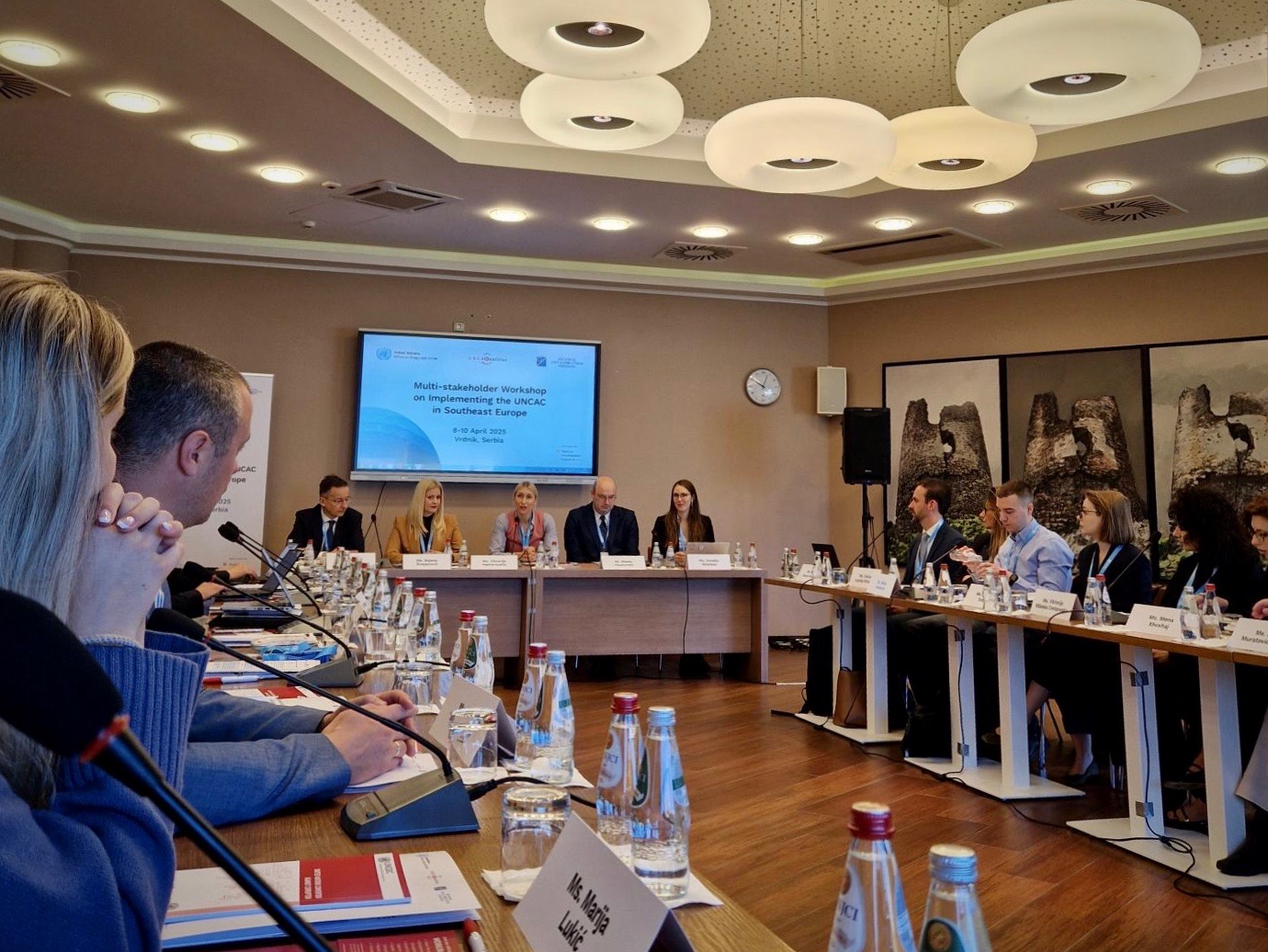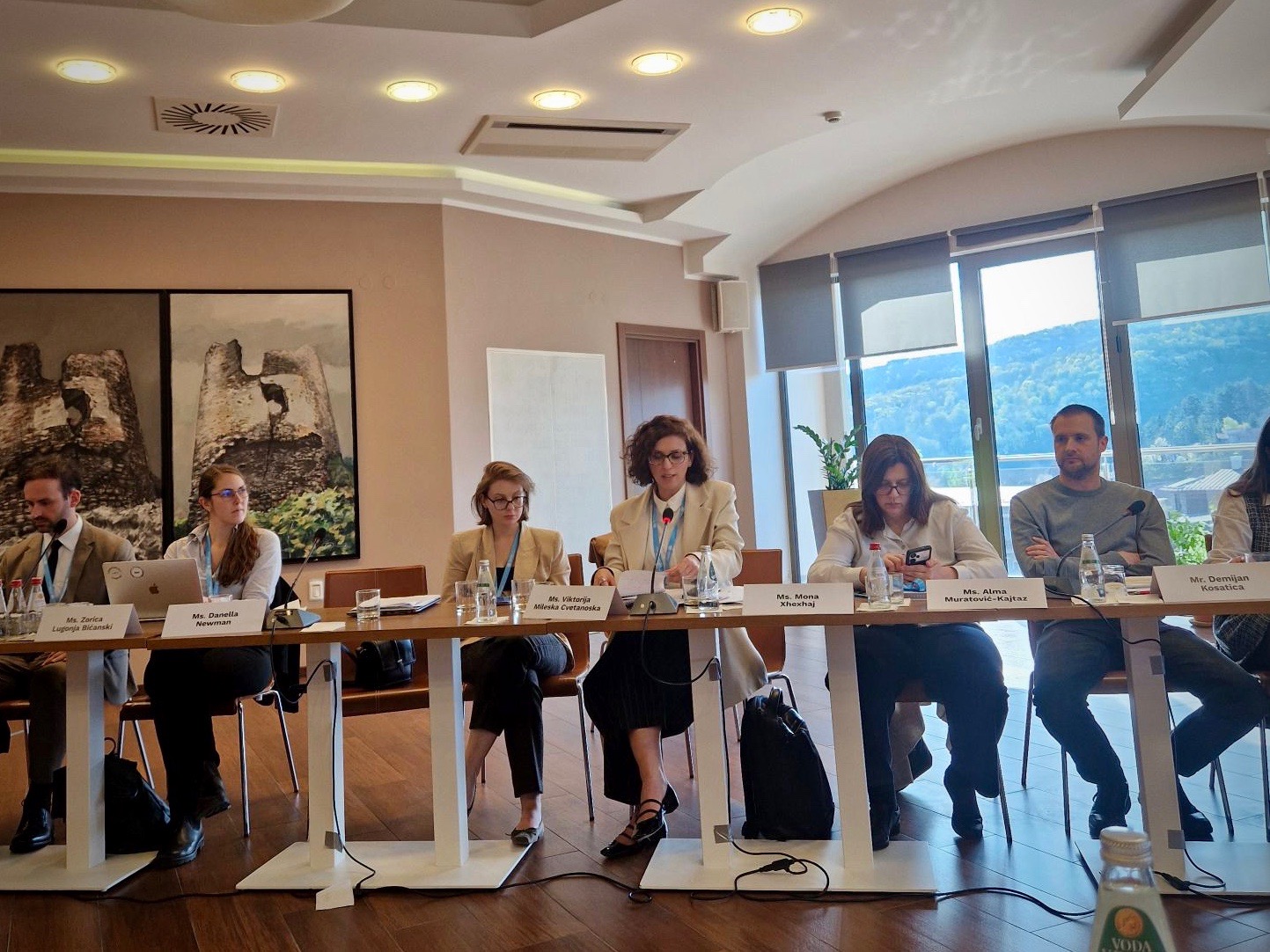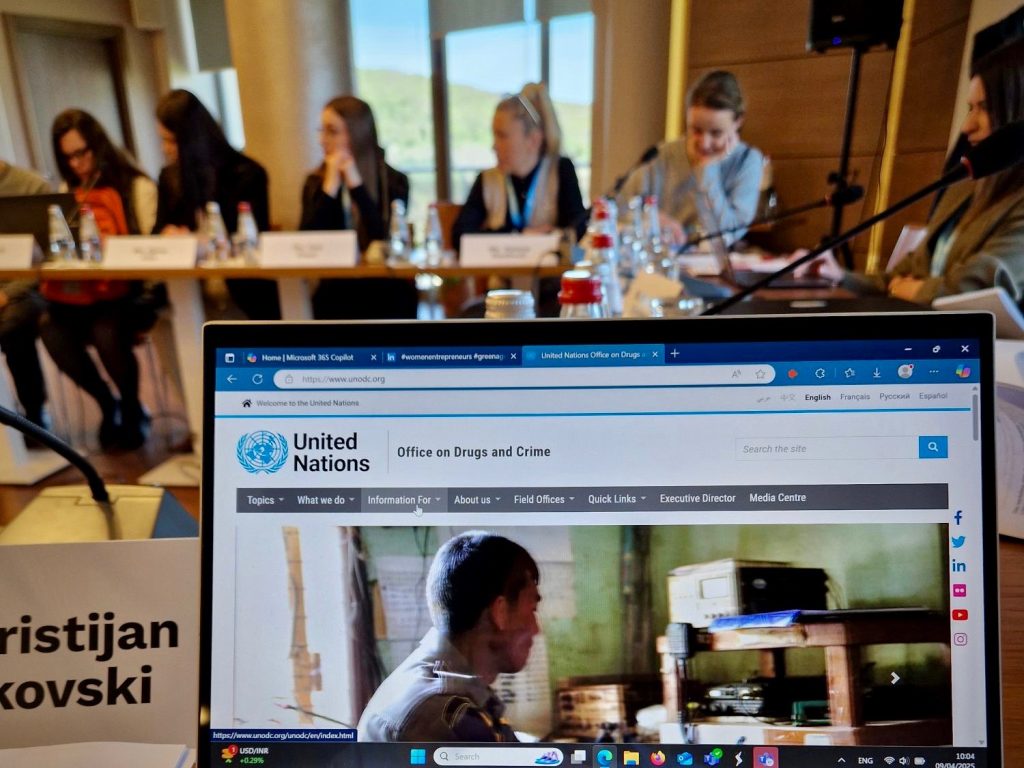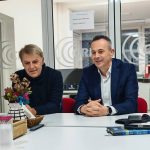CRPM’s Program Coordinator Kristijan Trajkovski took part in the Multi-Stakeholder Workshop on Implementing the United Nations Convention against Corruption (UNCAC) in Southeast Europe, held from 8 to 10 April 2025 in Vrdnik, Serbia.
Bringing together representatives from civil society and government, the workshop aimed to foster stronger cooperation in the fight against corruption and organized crime. Discussions centered around the UNCAC Review Mechanism, its links to the United Nations Convention against Transnational Organized Crime (UNTOC) and its Protocols, and the broader opportunities for collaboration through international frameworks.
Participants explored how preventive measures and commitments under these key UN Conventions can be effectively translated into national practice. Constantine Palicarsky, Crime Prevention and Criminal Justice Officer at UNODC, presented the outcomes of the 10th Conference of the States Parties (CoSP10) and examined their practical implementation across the region.
As corruption remains a critical challenge in Southeast Europe, the sessions focused on refining anti-corruption strategies and fostering deeper collaboration between institutions and civil society.

A Sectoral Approach to Corruption Risk Prevention
A sectoral approach was emphasized as a crucial step to enhance Corruption Risk Assessment (CRA) and Corruption Proofing Legislation (CPL) mechanisms. While earlier efforts primarily focused on higher education and public enterprises, the next phase aims to expand these mechanisms to the environment and security sectors, boosting resilience across the Western Balkans.
Adem Cuculj from the State Commission for Prevention of Corruption of North Macedonia underscored the urgent need for a clear and robust methodology for corruption risk assessment. However, he also highlighted a persistent challenge: the lack of political will and government commitment to implement reforms decisively.
Despite these hurdles, the workshop demonstrated that public authorities at the operational level remain committed, acknowledging the important role of civil society organizations (CSOs) as partners in anti-corruption efforts.
“The most significant achievement of this workshop was the collaborative group work, where CSO representatives from Macedonia and members of the State Commission for Prevention of Corruption worked side by side to identify gaps in the IRM UNCAC recommendations and explore ways to integrate them into national policy and practice. This confirmed our belief that meaningful progress in anti-corruption can only come through genuine multi-stakeholder collaboration,” said Kristijan Trajkovski of CRPM.
Inclusive Governance and CSO Cooperation
Igor Čorluka from the Agency for Prevention of Corruption of Bosnia and Herzegovina provided valuable insights into the complexities of coordinating anti-corruption efforts within a highly fragmented governance system. Navigating 13 different commissions, the Agency plays a central role in ensuring national-level alignment with UNCAC obligations.
The Guidelines for Civil Society Cooperation were highlighted as a key tool for boosting transparency and improving collaboration between public institutions and CSOs. The creation of an Advisory Team for UNCAC Implementation in Bosnia and Herzegovina signals a step forward in inclusive governance, ensuring that civil society has a meaningful voice in shaping national anti-corruption strategies.

Toward Actionable Anti-Corruption Reform
Interactive group exercises enabled participants—both from public institutions and civil society—to review UNCAC country reports and propose concrete follow-up actions. These collaborative efforts are critical to turning anti-corruption commitments into real, actionable reforms.
Throughout the three-day workshop, international experts offered guidance on turning commitments into practice. Interactive panels sparked important discussions on enhancing CSO-public administration cooperation—not as critics of governance, but as equal partners in promoting transparency and accountability.
This multi-stakeholder workshop proved to be a vibrant platform for knowledge-sharing, policy dialogue, and strengthened cooperation, advancing the shared goal of building more transparent and resilient societies in Southeast Europe.


